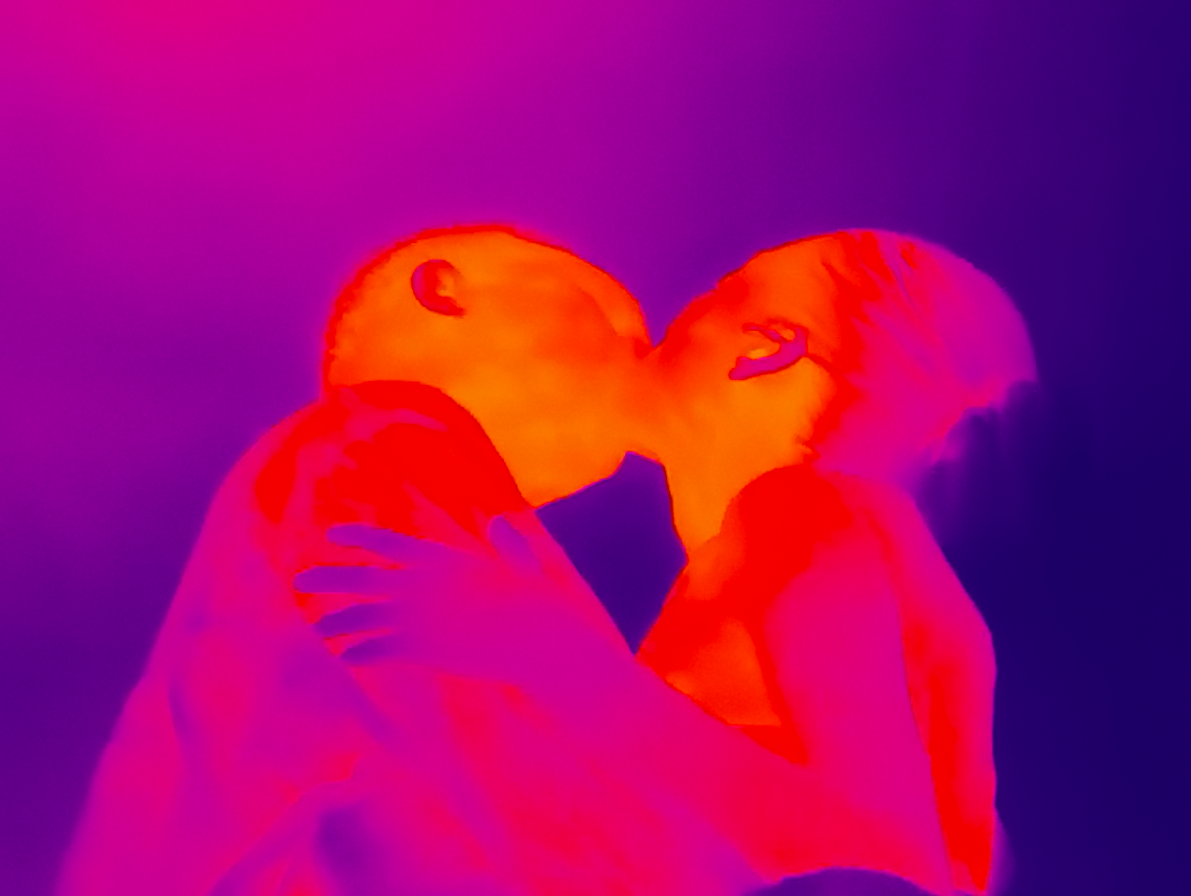In Shards of Moon, Bi Gan harkens back to the phantom rides of yore as he constructs a visual poem befitting Evgueni Galperine’s propulsive composition. It all starts with black-and-white train tracks, a glimpse backward morphing into forward motion. Soon, the tunnel’s darkness turns into a trip to the moon reminiscent of Méliès’ fantasy, though far removed from its lushness. Yet, some of that Jules Vernian fairy-tale manifests in a burst of colour. It’s not tinted celluloid but a fade into electricity and, in its nucleus, the heat of human connection—a kiss. Again, a cinematic phantom comes to haunt the present in the form of William Heise’s famous Edison short, even if, here, the lip lock isn’t played for laughs. Instead, Eros blazes in infrared footage ready to disintegrate in a wave of abstraction.
Listening to the piece, Galperine’s music feels like a regimented march toward some glorious discovery, a celebration that the Brussels Philharmonic renders feverish fantastic. Such robust orchestrations could read contrary to the intimacy of a kiss if not for Bi Gan’s contextualization of that gesture in his cinema of movement. The aural euphoria combines with nostalgic winks to form a historical rumination, a filmic ride where opposites contract and conjoin, meaning the same despite adversarial origins. Under the spell of music and image, we come to see that, by looking back, cinema moves ahead. The past is a vehicle to the form’s future, and Shards of Moon is a time machine in the guise of a three-minute short.
